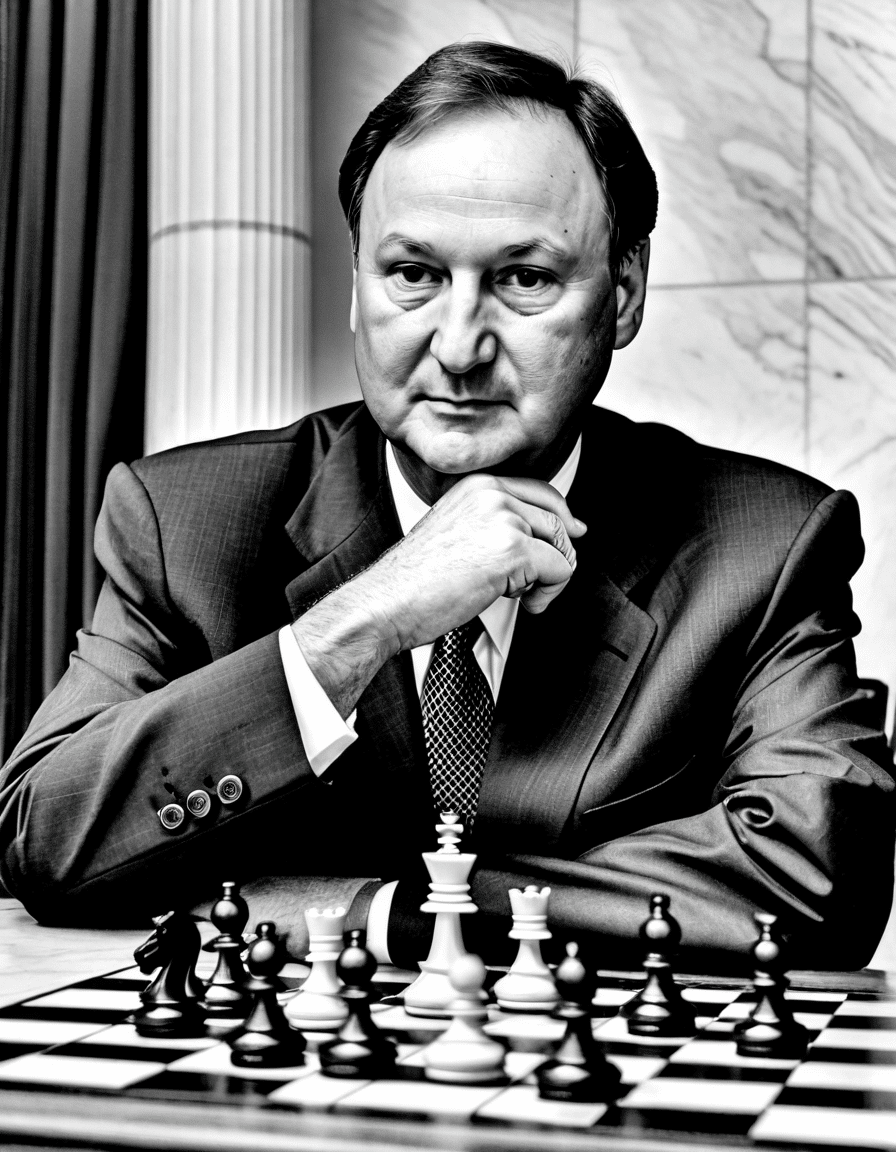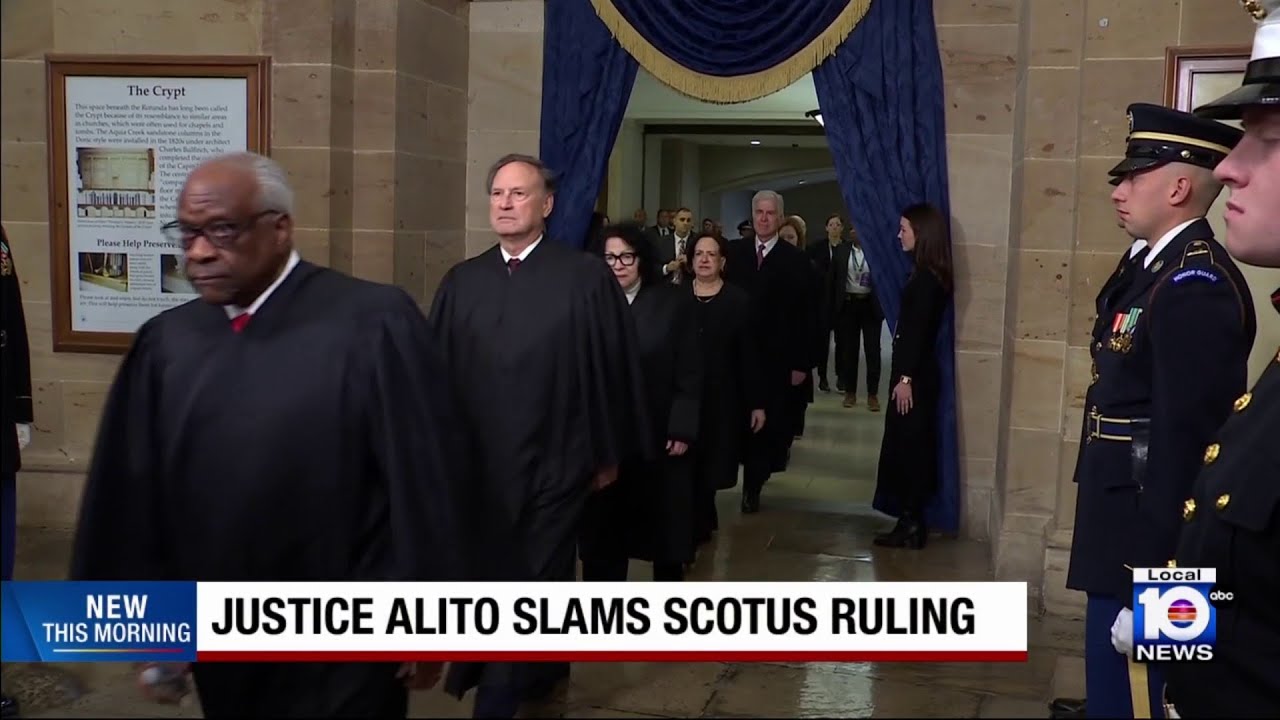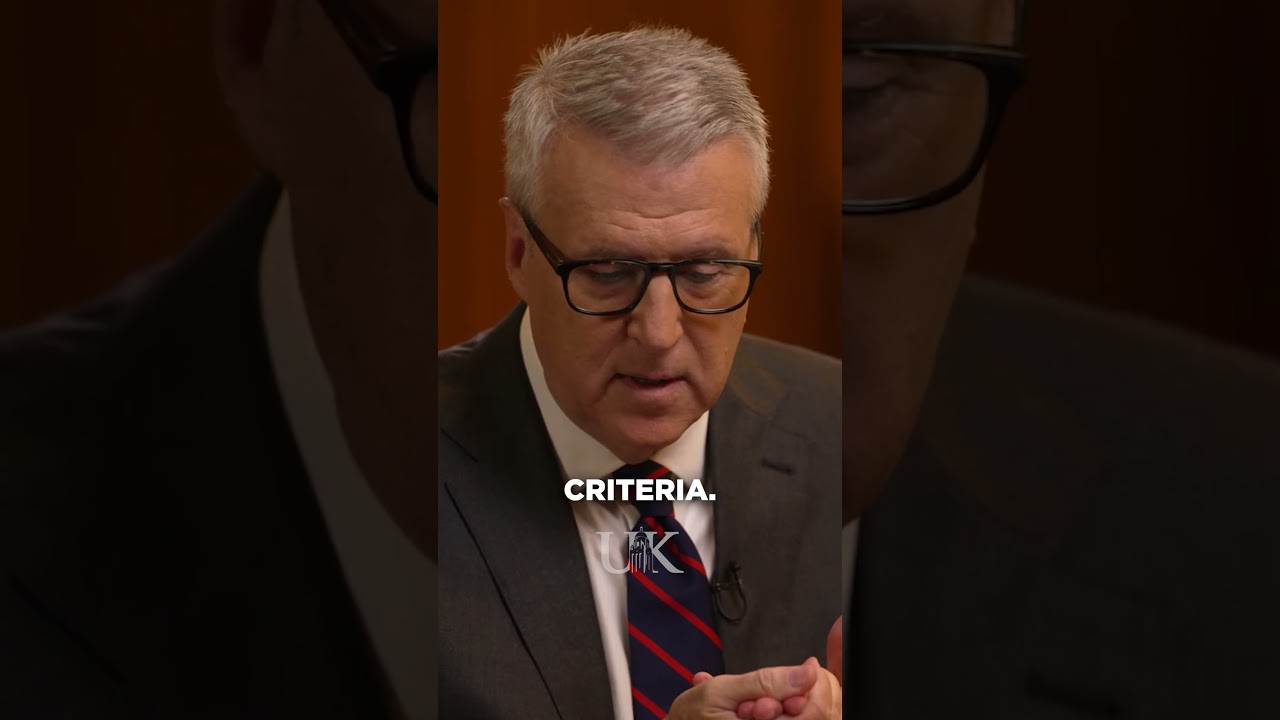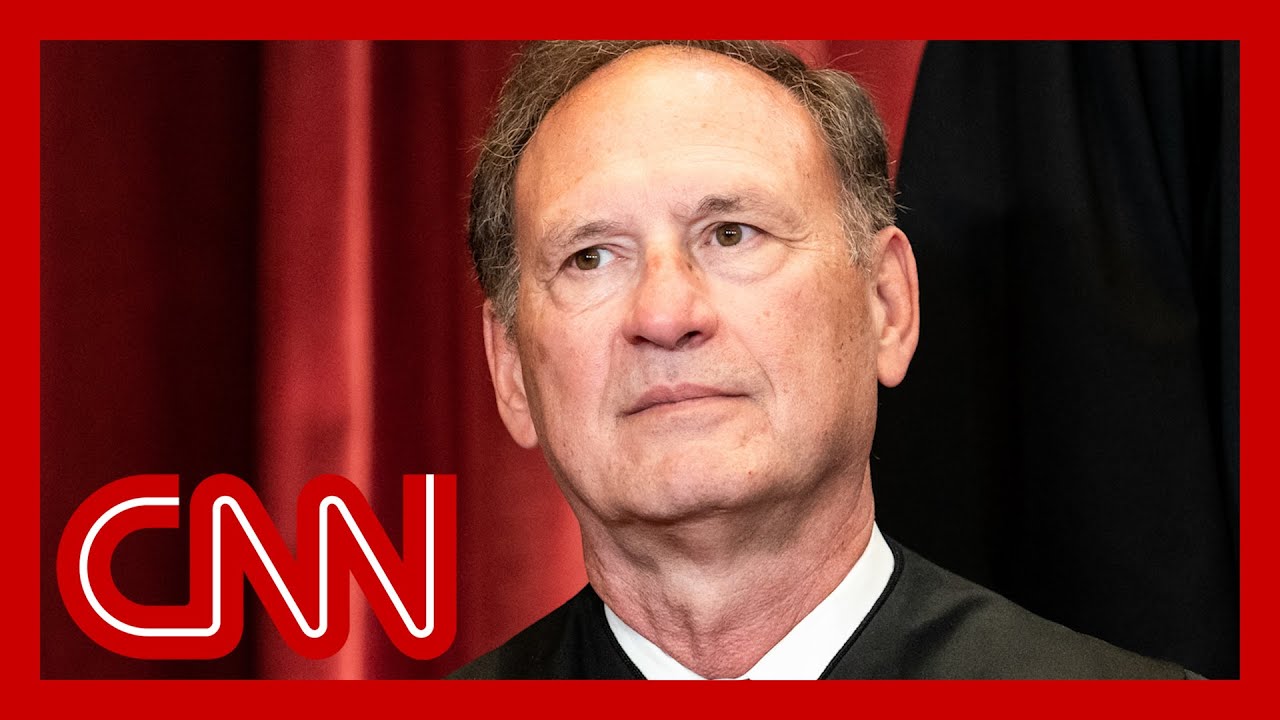The role of Judge Alito has been pivotal on the Supreme Court, as he embodies the conservative wave that has reshaped judicial interpretations over the last two decades. Serving since 2006, Justice Alito has been a stalwart proponent of originalism and textualism–two approaches that emphasize understanding the Constitution’s text as it was originally intended. His perspective starkly contrasts the more liberal justices and has significantly directed the court’s outcomes, influencing critical legal decisions that resonate deeply with the American public.
Understanding Judge Alito’s Judicial Philosophy
Judge Alito’s philosophy is often grounded in the belief that the Constitution should be interpreted based on its text and the original intentions of the framers. This strict adherence to the Constitution’s letter means that modern interpretations, which might reflect contemporary values, often face pushback from Alito and his like-minded colleagues. By maintaining this approach, Alito stands as a counterweight to evolving societal norms, focusing instead on what the law was designed to represent over two centuries ago.
In many of his opinions, Justice Alito demonstrates a clear preference for limited judicial intervention in legislative matters. He argues that when interpreting laws, particularly those pertaining to individual rights and freedoms, courts should reflect the documented intent rather than inferring meanings from evolving societal norms. This method has made him a central figure in significant rulings that continue to spark nationwide discussions, affecting not just legal circles but everyday lives.
Moreover, Alito’s stance extends to an unwavering commitment to defense against perceived government overreach. His judicial style resonates deeply with conservative advocates who view a strict interpretation of the Constitution as vital for preserving individual liberties. Alito’s perspectives challenge the balance many seek between a progressive legal approach and a traditionalist interpretation of American laws.
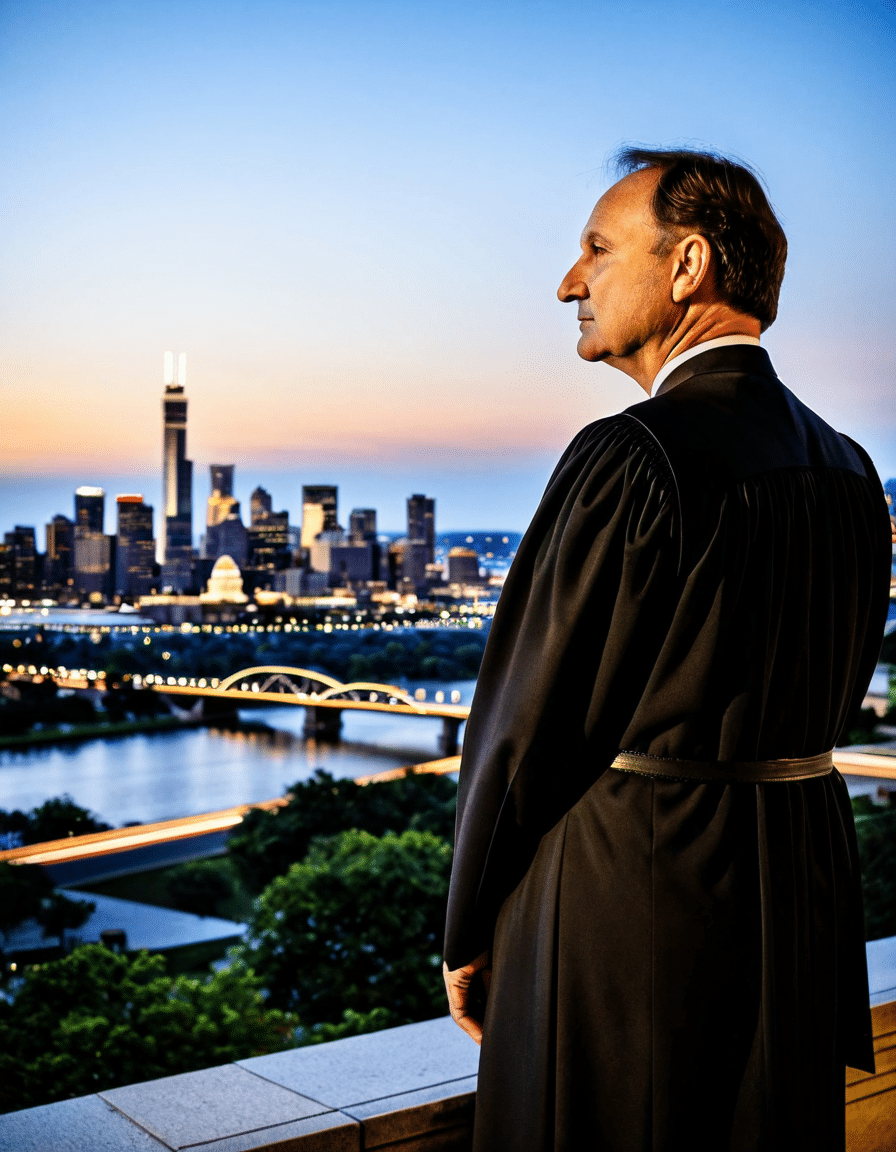
Top 5 Landmark Decisions that Defined Justice Alito’s Legacy
Justice Alito’s influence on the Supreme Court is woven into numerous landmark decisions that have fundamentally shifted the trajectory of American law. Here’s a closer look at the five most significant cases that define his judicial legacy:
Judge Alito authored a historic opinion that overturned Roe v. Wade, altering the legal framework surrounding abortion rights. His reasoning relied heavily on the absence of a constitutional right to abortion, showcasing his commitment to originalism. The ramifications reverberated nationwide, igniting passionate protests and extensive debates across the country, illustrating just how influential this ruling has become.
In this case, Justice Alito ruled in favor of providing state-funded tuition for students attending religious schools. The court’s decision clarified the extent of religious freedoms under the Constitution, emphasizing that prohibiting aid based on religious affiliation constitutes discrimination. Alito’s viewpoint reveals a significant shift toward recognizing the critical nature of religious exercise in educational choice.
Alito’s support for Arizona’s voting restrictions represented a decisive move towards endorsing state control over voting laws. Arguing that these laws did not violate the Voting Rights Act, his opinion emphasized the need for state legislatures to determine their voting mechanisms without federal intervention. This decision set a precedent that some believe undermines voter protections.
Alito played a significant role in this ruling that lessened the criteria for what constitutes “serious bodily injury” in drug trafficking offenses. His approach highlighted a strict interpretation of crime-related statutes, emphasizing accountability and law enforcement latitude to reduce crime more effectively. This approach signifies his commitment to traditional law and order principles.
Even though this case was issued before Alito’s dominant influence, his dissent showcased a commitment to restricting abortion access. His opposition to the undue burden standard illuminated his perspective on reproductive rights, positioning himself as a vocal advocate for more stringent regulations regarding abortion.
Judge Engoron’s Influence: A Contrasting Judicial Philosophy
Contrasting sharply with Judge Alito, Judge Arthur Engoron has gained attention for addressing high-stakes cases in New York, showcasing a distinct judicial philosophy. Engoron tends to focus on equity and accountability, ensuring that individuals face consequences based on the power dynamics prevalent in various cases. His rulings often reflect a more progressive viewpoint that aligns with modern legal sensibilities.
Engoron’s willingness to hold high-profile defendants accountable stands in stark contrast to Alito’s rigorous interpretation of the law. As issues of social justice gain traction in the courtroom, the divergent approaches of both judges highlight a broader spectrum of judicial philosophies shaping American legal discourse. This juxtaposition not only reveals ideological divides on the bench but also illustrates the varying ways the law can evolve in response to societal pressures.
In analyzing both judges, one sees how different philosophies can lead to dramatically diverging outcomes. Alito’s firm adherence to originalism clashes with Engoron’s more fluid interpretation, illustrating the complex interplay of judicial ideologies that shape critical legal precedents.
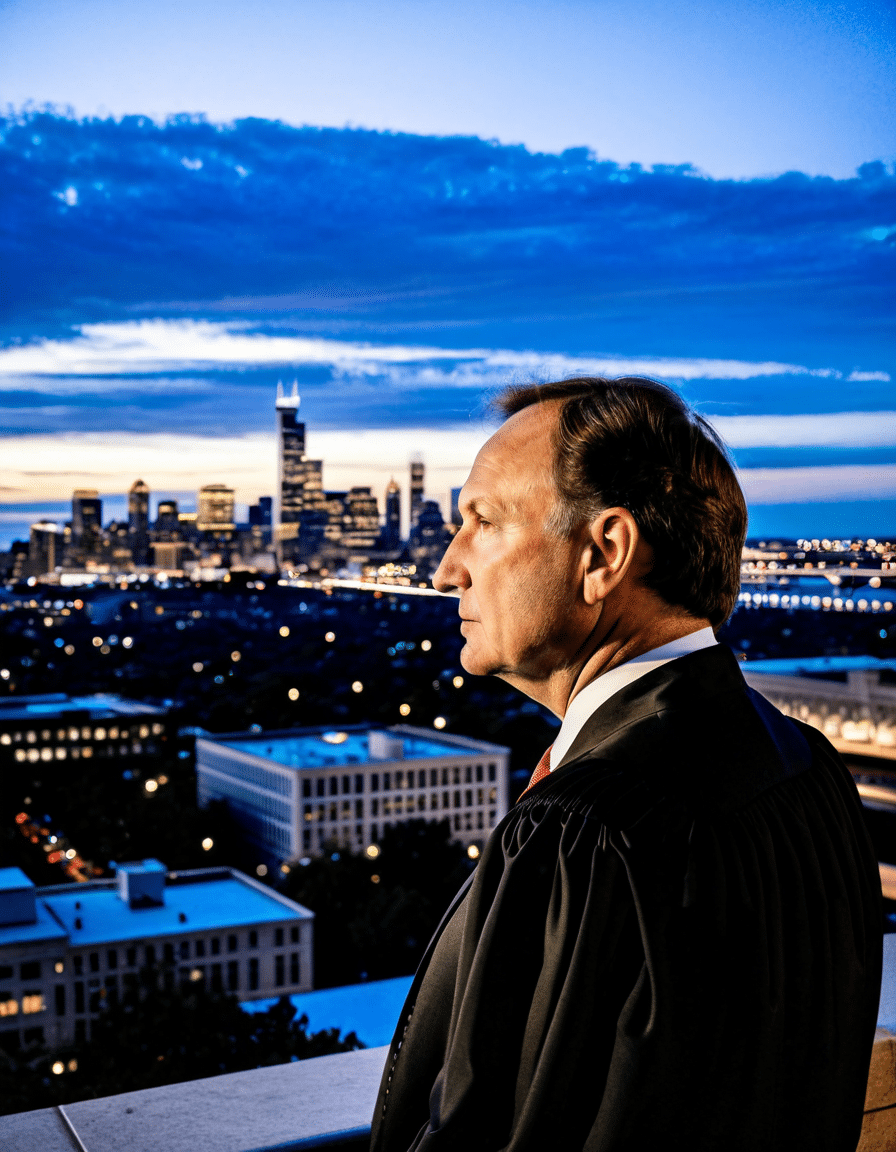
Justice Alito’s Impact on Future Generations
Justice Alito’s firm conservative principles indicate that the Supreme Court’s trajectory will likely remain influenced by his decisions for years to come. With ongoing discussions surrounding voting rights, reproductive health, and religious freedom, future justices may either align with or push back against his legislative impacts. His unwavering commitment to originalism positions him as a significant figure whose legacy could challenge or fortify existing legal precedents.
Furthermore, ongoing debates around issues such as LGBTQ+ rights and climate change legislation will likely engage Alito’s judicial principles and interpretations. His influence shapes not only the court’s present and immediate future but also the long-term trajectory of American public policy and law. As society continues to evolve, the balance between traditional interpretations maintaining relevance alongside progressive arguments will heavily define judicial discourse.
Ultimately, it’s clear that Judge Alito’s legacy will extend well beyond his tenure on the bench. His rulings have cemented him as a conservative force, shaping the very fabric of American legal discussions and public sentiment for generations to come.
Envisioning the Future of the Supreme Court Landscape
As the nation progresses towards different ideals andmores, the Supreme Court faces significant challenges ahead. Alito’s steadfastness as a conservative figure amidst this turbulence underlines the ongoing tension characterizing American socio-legal dynamics. The implications of his rulings on contemporary issues will undoubtedly resonate as key focal points for legislators and citizens alike.
With ongoing political polarization, the court’s decisions will weigh heavily on public trust in the judicial system. The justices’ actions, bubbling with potential fallout, illustrate the complexity of balancing traditional rulings with evolving societal standards.
Navigating this legal landscape on the court, especially with Judge Alito’s influence as a conservative talisman, evokes a sense of uncertainty. The future holds the potential for another revolution in judicial thought, hinting that the intricate dance between legal interpretations and society’s evolving values keeps the court and its justices fundamental to the American experience.
Judge Alito: The Conservative Force on the Supreme Court
A Snapshot of Judge Alito’s Journey
Most folks know Judge Alito as a strong conservative voice on the Supreme Court. Appointed in 2006 by President George W. Bush, his influence can be felt in various pivotal rulings. Before his Supreme Court days, Alito served as a judge on the U.S. Court of Appeals for the Third Circuit, where he made his mark interpreting laws in cases with national and even global implications. Fun fact: in the wake of heavy changes caused by events like Hurricane Katrina, which famously claimed over 1,800 lives, Alito’s decisions often centered on the balance between individual rights and governmental power. This balancing act resonates with ongoing discussions around resilience in the face of catastrophe.
Fun Tidbits and Trivia
In Alito’s world of law, he’s known for his attention to detail and strong reasoning. Interestingly, outside the courtroom, he has a flair for the arts, having expressed his love for movies. One recent film that made waves is Rust Creek, an intriguing thriller that captures the complexities of survival, much like many of Alito’s legal decisions that often reflect the nuances of American life. Speaking of entertainment, have you caught up with the latest on Joel Kim booster? He’s been gaining traction in the comedy scene, much like how Alito has left his mark on the law.
Judge Alito and Pop Culture
Even judges like Alito occasionally find themselves in the spotlight of pop culture. For instance, some legal decisions he’s been part of have stirred debates akin to those around quirky snacks like Whitmer Doritos, bringing some unusual allure into the legal framework. Meanwhile, if you’re in the mood for some downtime and looking for new Movies To stream, consider that even Alito likely enjoys the occasional film to unwind after a busy day in court. And hey, if you’re into lottery numbers, make sure to check the GA pick 3 results, as fortune seems to favor those who actively engage with their interests—much like Alito’s decisive approach to his judicial role.
In sum, Judge Alito represents a fascinating blend of law and culture, making his mark not just in the courtroom but in broader social narratives. His judgments can sometimes feel like the unpredictable plot twists in films or a gripping drama unfolding in real time. It’s a wild ride, and through it all, Alito continues to showcase the power of a strong judicial presence.
